Published Nov 20, 2021
A NaNoWriMo Pep Talk From The Next Generation
The episode "Time's Arrow - Part 2" gives writers the lessons they need to conquer their own novel.
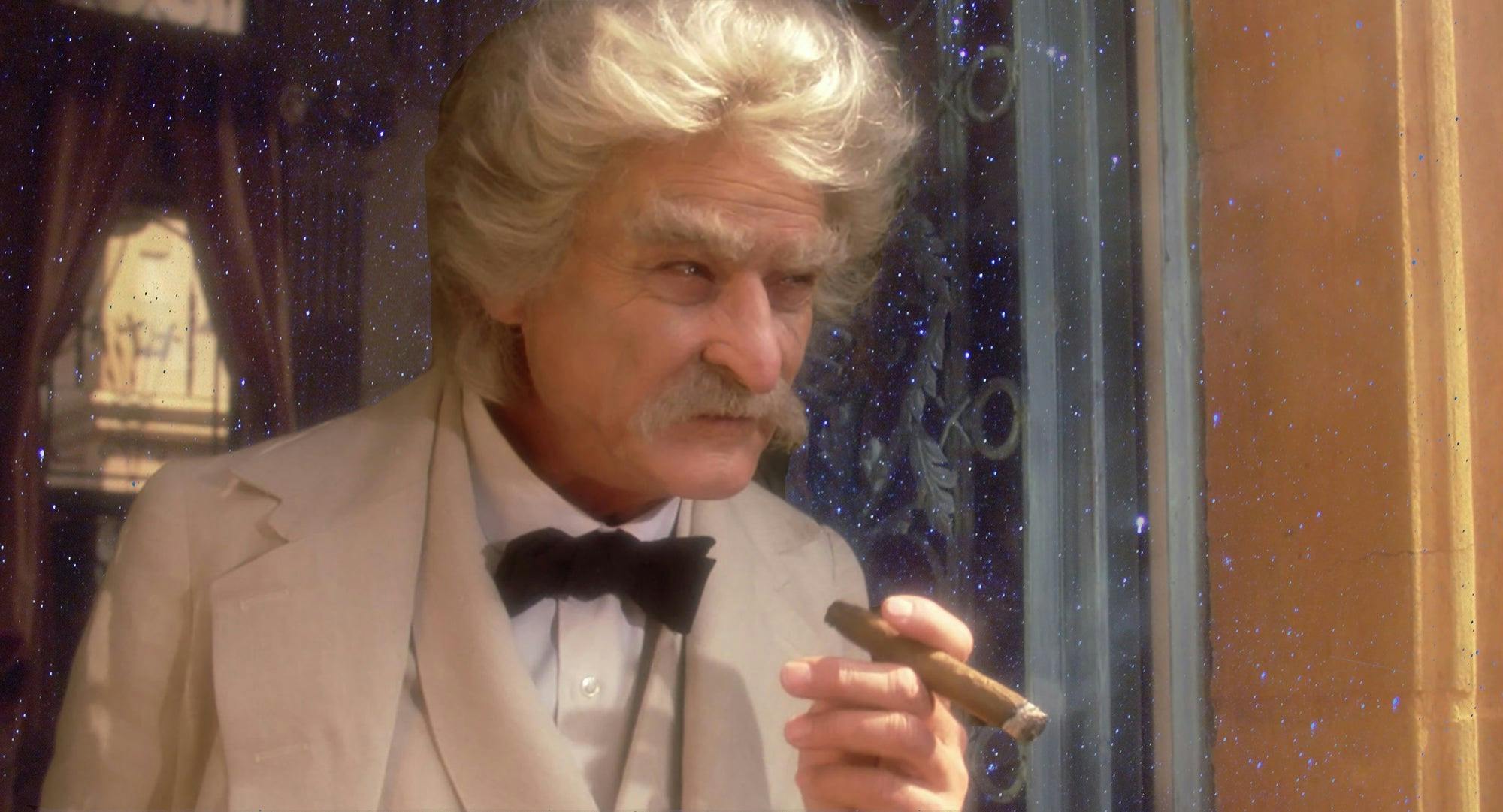
StarTrek.com
If you’ve taken on the challenge of National Novel Writing Month this year, congratulations on reaching the the home stretch! As you gear up for the final part of this journey, don’t forget to take a moment to celebrate how far you’ve already come, and remember that every word you write this month is a victory because it’s more than you had before.
As a six year (and counting) NaNoWriMo participant, I know that my thoughts about writing at this point in the month can sometimes seem far away from the bright-eyed and resolute enthusiasm I had at the start. Why am I doing this ridiculous thing? Does it matter? What’s the point?
When I ask myself these questions, I find encouragement and affirmation in the Star Trek: The Next Generation episode “Time’s Arrow – Part 2.” This heartfelt and mind-bending episode, where the Enterprise crew travel back in time to the 1900s to stop an alien threat, is a love letter and an affirmation to writers throughout all of time and space.
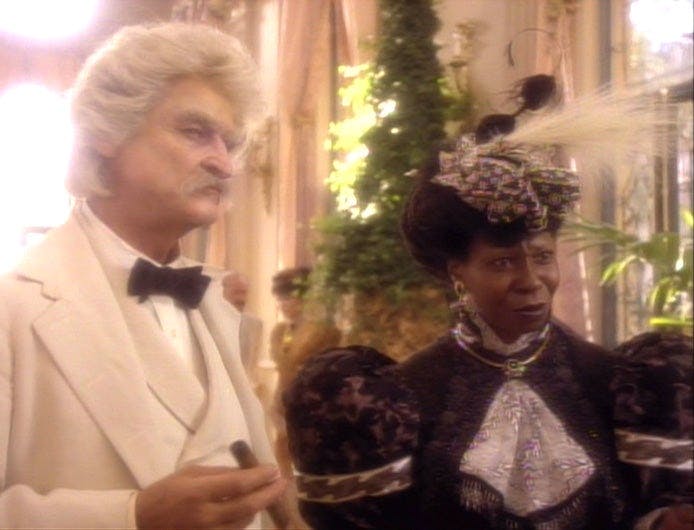
StarTrek.com
Of all the 19th century personalities this episode could have introduced us to, “Time’s Arrow” chose to focus on one Samuel Clemens – better known by his pen name, Mark Twain, the author of The Adventures of Tom Sawyer, The Adventures of Huckleberry Finn, and many more short stories and novels.
Early in the episode, Clemens has some advice for one side character – an entrepreneurial young bell-boy named Jack – that all writers can take with us throughout NaNoWriMo and beyond. When Jack asks Clemens if he would be interested in writing his life story, Clemens declines, saying instead “Young man, I have a maxim that I have always lived by: No one is more qualified to tell your story than you are.”
If you are looking at your NaNoWriMo project and feeling like the story you’re working on has been told before, remember that you gravitated to this idea for a reason, and that no one else could write this quite like you will; just because some parts of it may be familiar doesn’t mean we don’t need to hear what you have to say on the subject. Your unique experiences and perspectives will make your story new.
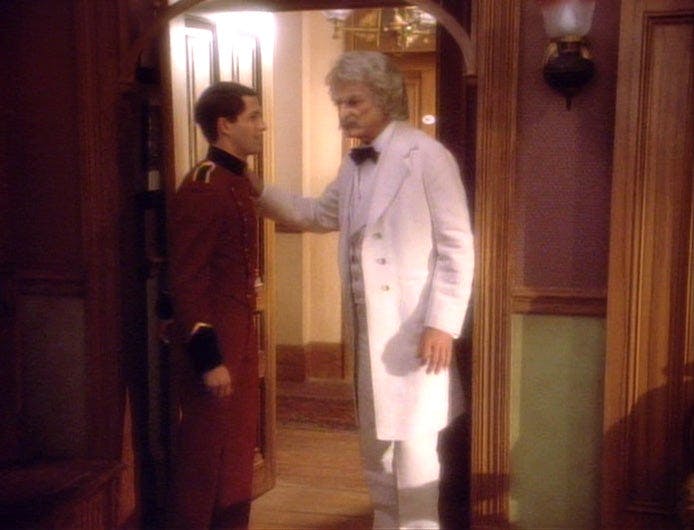
StarTrek.com
Clemens also encourages Jack to “follow your dreams and write about them,” and if you’re feeling stuck in your plot, maybe this advice can help set you on a new direction. If you have a place you’ve always wanted to visit, or something you wish you could have experienced, why not send a character there and see what they make of it? Or why not try something new yourself, either to take a break from your writing or to get some new material to work with?
Hopefully, this advice will work out as well for you as it did for Jack. On his way out the door in his last appearance in the episode, as he’s talking about his dream of going to Alaska and writing about it, the young man mentions his full name for the first time – it turns out, Clemens was advising a young Jack London.
Along with his advice, Clemens’ actions throughout the episode are a model for how writers can seek out new ideas and inspiration. While I wouldn’t recommend going out of your way to interfere with the next group of humanity-saving, time-traveling starship crew members you meet, Clemens does have some good ideas about keeping his eyes and ears open for unusual developments, following interesting leads to see where they lead, and justifying this interest as "writer’s curiosity."
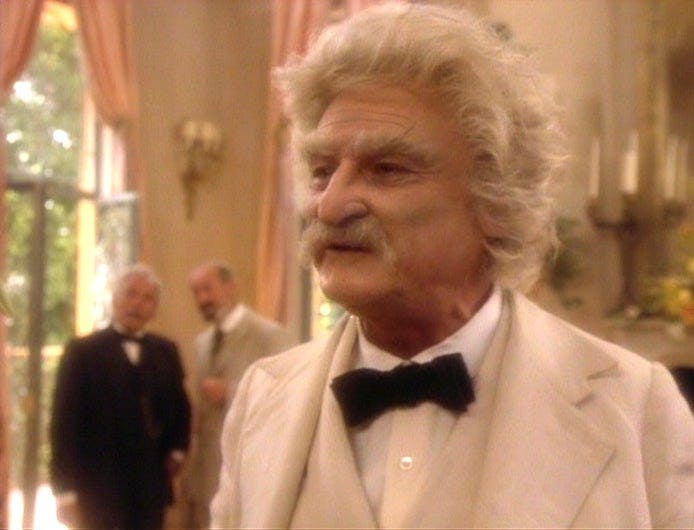
StarTrek.com
Clemens understands that most good stories tend to start with questions. For him, in this case, some of those questions include, "What is an android from the future doing in my city?" and, "Is his presence here putting the present timeline at risk?"
As we try to understand our characters and settings better, we can ask ourselves some of the same fundamental questions. "How did this person/thing/android from the future/magical ballpoint pen/sentient crabapple get where it is now?" "What is it going to do next?" "How could it be stopped?" "Who would want to stop it?" "Who would want to make sure that nothing stops it?"
By asking and answering these questions, we can map out our story’s path forward and follow it to its conclusion, like Clemens follows Data through San Francisco.
"Time’s Arrow" also makes a point of acknowledging just how valuable writers are. Through a combination of interesting luck and absolute stubbornness, (or “Taking advantage of an irresistible opportunity, as any good writer would,” as he puts it) Clemens briefly winds up in the 24th century with most of the Enterprise away team. When Riker looks around and discovers that they have acquired an unexpected guest, he is horrified about the impact this might have on the timeline, noting: “The disappearance of Mark Twain, one of the most noted writers of the 19th century – that’s not supposed to happen!”
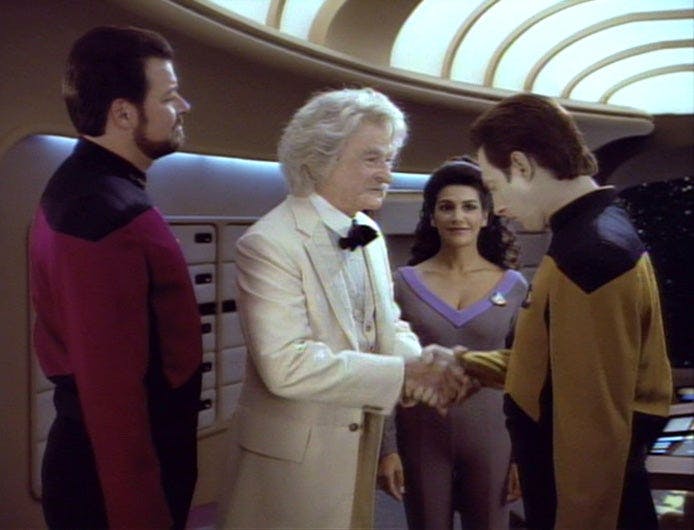
StarTrek.com
As a writer, I think Riker’s reaction is notable here because Twain couldn’t possibly have known about the enduring fame he would have even after 500 years. When we each think about the writers who most influenced us, it’s easy to see how removing them and their work from our lives would be a devastating loss. And yet, when we sit at our own keyboards or notebooks, it’s just as easy to think that deciding not to write this one story might not matter at all. But we can’t know what impact our words will have in the future, and maybe your story will become just as irreplaceable to someone as your favorite writer’s work is to you. We can’t all have William Riker to tell us that our writing matters to the very timeline of humanity, but we can encourage ourselves with that future perspective.
Finally, and perhaps most importantly, “Time’s Arrow” is one of the episodes where Star Trek takes a step back from the plot and reminds us of some of the defining characteristics of the show itself. When Clemens is in the 24th century, he is reluctant to believe that the society he sees around him is as utopian as it seems. He tries to analyze life on board the starship through the narratives he knows from his own time – colonialism, military conquest, oppression, poverty, prejudice, and power imbalance. Eventually, by explaining how these changes came to be, Troi is able to convince him that, “that isn’t how it is anymore.”
Star Trek allows us all to be, like Clemens, guests in their 24th-century world, and like him we can take hope that such a future could be possible if we strive towards it. When we think about our own writing and the worlds we’re creating, we can also draw inspiration from “Time’s Arrow” and think about what we want readers to take away with them, if anything, and how we can lay those cards out on the table.
So, with the encouragement of “Time’s Arrow” on our side, let us continue our 30-day mission to seek out new words, explore new plots and characters, and boldly go into the rest of this beautiful challenge!
Julia Peterson (she/her) is a queer Jewish journalist currently based in Regina, Saskatchewan. She also writes for INK Magazine, The Carillon, and Reading in Translation, and would give just about anything to have a pet tribble. Find her on Twitter @hark_a_julia.
